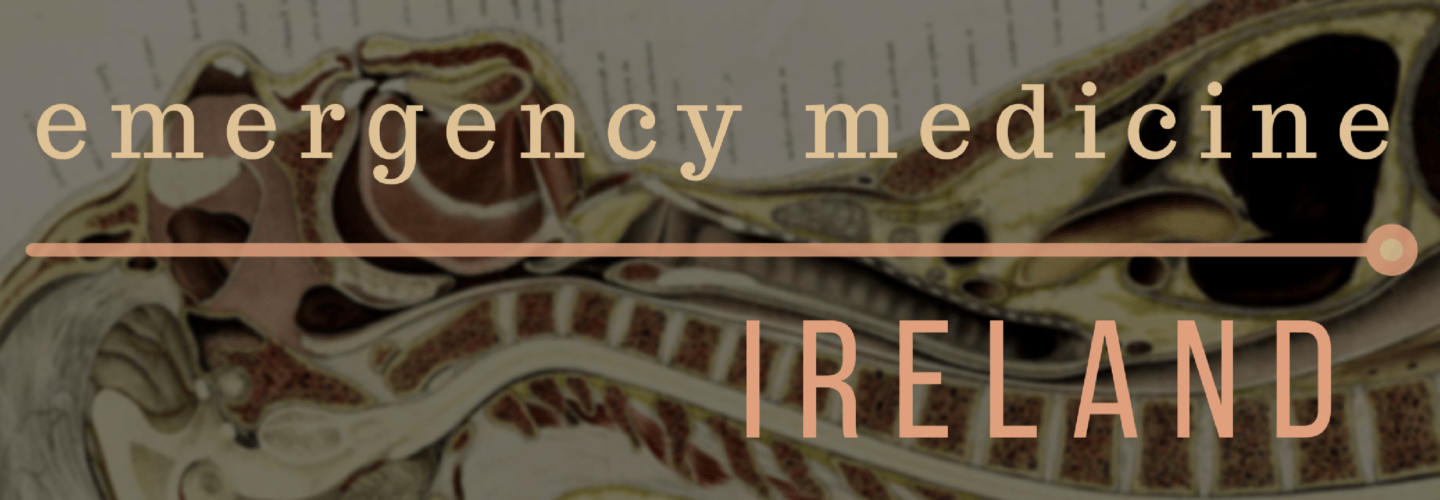I’m entering a few months prep for the UK and Ireland exit exam in Emergency Medicine: the FRCEM. I’ll be adding lots of little notes on pearls I’ve learned along the way. A lot of my revision is based around the Handbook of EM as a curriculum guide and review of contemporary, mainly UK guidelines. I also focus on the areas that I’m a bit sketchy on. With that in mind I hope they’re useful.
You can find more things on the FRCEM on this site here.
We’ve covered the European Hyponatraemia Guidance before I know.
But I still want somewhere to put SIADH and high sodiums for the exam. And apologies for the brevity and mistakes to the nephrologists and endocrinologists who might wander in here by mistake.
- fluid loss with replacement by hypotonic fluid (eg diarrohoea replaced with oral water only)
- translocational hyponatraemia (the low sodium seen with high sugar – it’s genuinely low but because the high sugar has “sucked” water out of the cells diluting the sodium)
- pseudohyponatraemia (a measurement error that occurs with the high proteins of myeloma)
- polydipsia
- ecstacy
- nephrotic
- cirrohsis
- heart failure
- drugs eg diuretics
- SIADH
- the idiot’s guide (I am an idiot, I feel qualified to give it…)
- ADH tells the kidneys to retain water.
- It is produced appropriately when you need to hold on to water
- When produced inappropriately the excess fluid that results from less wee wee means that the sodium will be diluted and the concentration will fall.
- Causes
- CNS, all kinds of disasters
- Lots of lung cancers but small cell lung the commonest
- Pnuemonia
- Drugs like SSRIs
- Sarcoid (because the answer can always be sarcoid)
- all dependant on the cause
- if they’re well and it’s SIADH it’s generally best to fluid restrict them (remember this is the idiot’s guide…) and be sure not to rise it too quickly (<10-12 in a day). An inappropriate litre of saline will easily bump them 3 quarters of that in a few hours so be careful.
- if they’re really sick eg seizing then they need a rapid (but not complete) correction of sodium. the European Hyponatraemia Guidelines state 150mls 3%. (or 2ml/kg)
Derby Hospitals has a nice online guideline
- free water loss
- you can see this in HHS with the osmotic diuresis causing free water loss
- not drinking/responding to thirst
- typically dementia
- diabetes insipidus
- nephrogenic reistance to ADH eg lithium
- central eg lack of ADH production
Symptoms
- your brain is shrinking from the free water loss and symptoms reflect that. (note they’re quite similar to what happens when your brain swells from hyponatraemia…)
- headache
- confusion
- vomiting
- seizures
- nystagmus
- coma
- (note polyuria from DI or HHS is the cause of the hypernatraemia and not a direct result)
- testing: urine osmolalaity is the key test
- it should be really high if lack of water intake is the cause
- it should be low or lower than the plasma if DI is the cause
- it’s usually 350-450 in HHS
- treatment
- this is always contentious I find and I’ve never found a good answer
- in HHS saline is the fluid of choice but it probably all depends on calculations i don’t understand
